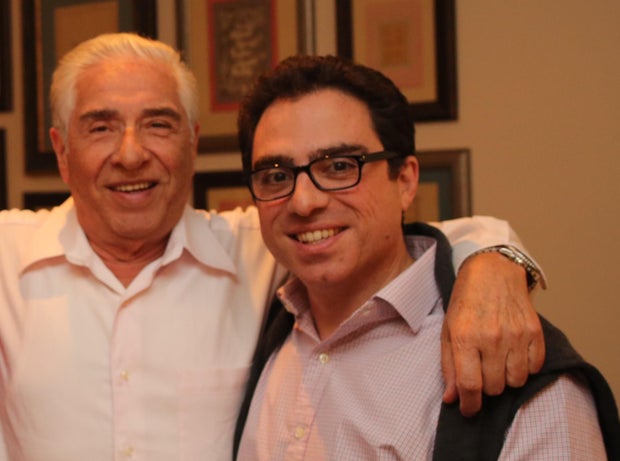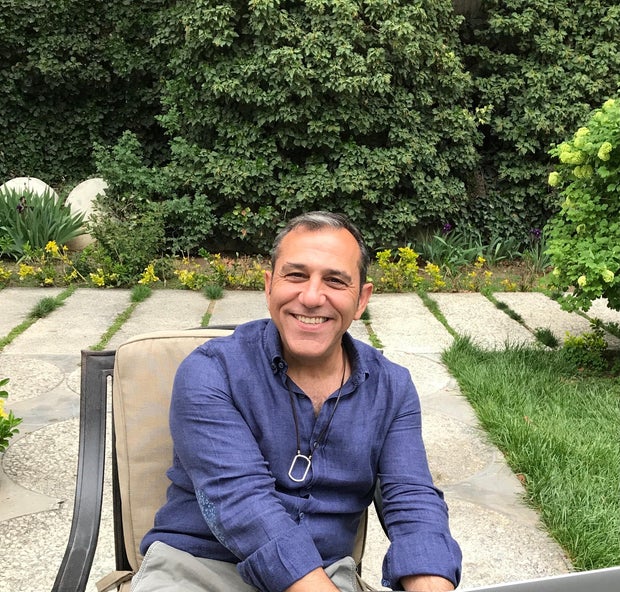Five US citizens detained by Iran were freed Monday in a high-stakes, complex diplomatic deal brokered between the Islamic Republic of Iran and the Biden administration that included the transfer of $6 billion in unfrozen Iranian oil assets and the release of five Iranians facing charges in the US. The Americans were expected to return o the US and land in the Washington, D.C., area Monday night.
The American prisoners include Siamak Namazi, Emad Shargi and Morad Tahbaz, who had all been sentenced to 10 years in prison on unsubstantiated charges of spying. Two Americans involved in the agreement — including one female former U.N. worker — wished to remain anonymous, according to U.S. officials.
The U.S. citizens were on a flight from Tehran to Doha, Qatar, White House officials confirmed to CBS News. They were then to be transferred to U.S. custody and put on a plane bound for the Washington, D.C., area, where they will be reunited with their families, senior administration officials said. Sources familiar with the planning said the Americans were expected to be given U.S. government cellphones to call their families to share the news of their freedom before their arrival.

Shargi, a businessman and Washington, D.C., resident, and Tahbaz, a U.K.-U.S. national and environmentalist, were both detained in 2018.

Upon returning to the U.S., the Americans will be given the option of going through a support process at a military hospital at Fort Belvoir in Virginia to prepare for their re-entry following captivity.
Because the U.S. has not had official ties with Iran since 1979, the Americans were escorted to the Qatari plane by the Swiss ambassador to Tehran, Nadine Olivier. She has helped monitor the Americans’ well-being since they were moved from Evin prison to house arrest in August following the Biden administration’s agreement in principle to the swap.
Ahead of the swap, senior administration officials did not share details about the health conditions of the Americans, but noted the Swiss have said the Iranians complied with the agreed-upon living conditions for their house arrest. Olivier acted as the Biden administration’s eyes and ears on the ground, confirming to State Department officials that the Americans were on board the flight.
Switzerland and Qatar have acted as go-betweens for the U.S. and Iran since the minimal diplomatic contact between the two nations established as part of the 2015 landmark nuclear accord known as the Joint Comprehensive Plan of Action was severed when the Trump administration exited the agreement in 2018. Despite a campaign pledge to revive the accord, the Biden administration’s attempts have failed. Iran’s nuclear development has continued.
Distrust between Washington and Tehran, even amid the swap, is high. The Biden administration agreed to help Iran gain access to $6 billion in Iranian oil assets that had been held in a restricted account in South Korea as incentive for Tehran to conduct the swap. Sources familiar with the complex diplomatic deal told CBS News that the billions in oil revenue were being transferred through European banks in the form of euros to a restricted account in Qatar as late as Sunday.
“We hope to see the complete repossession of assets by the Islamic Republic of Iran today and that it will all be transferred to Iran’s account in a friendly country in the region,” Iranian foreign ministry spokesperson Nasser Kanaani announced on Monday. “The government of Iran should have complete access to it, to use according to its need.”
The plan was to have the U.S. Treasury block Tehran from accessing the funds until the Americans departed Iranian airspace. The Biden administration has repeatedly said the U.S. Treasury will continue to monitor the account in Qatar and restrict the use of funds for solely humanitarian purposes.
The Biden administration briefed Congress in advance of the trade, but Senate Intelligence Committee chairman Mark Warner, Democrat of Virginia, indicated the information offered to his staff was not sufficient for him to defend the administration’s deal.
“Obviously, money is fungible,” Warner told “Face the Nation.” “The administration have said there are guardrails. I want to get a better description of those guardrails first.”
The Republican chair of the House Intelligence Committee, Rep. Mike Turner of Ohio, is concerned that any financial relief will incentivize future hostage taking.
“Whenever you put a price on American heads, you get an incentive for people to take more hostages,” Turner told “Face the Nation.” He dismissed the Biden administration’s argument that the funds would be restricted.
Senior administration officials reiterated Sunday night that the funds are “severely restricted” and are being funneled through “trusted” banks with the “full cooperation” of the Qatari government.
“This is not a payment of any kind,” a senior administration official said Sunday night.
The money, which was paid by South Korea to Iran years ago for oil and subsequently frozen, is only to be used for humanitarian purposes and is limited to food, medicine, medical devices and agricultural products, a senior administration official said. They stressed that it is not U.S. taxpayer money and no funds will go directly to Iranian companies or entities. If Iran tries to divert the money, the U.S. will take action to “lock up” the funds, the official said.
In addition to those billions, President Biden agreed to grant clemency to five Iranians who were facing charges in the U.S. Iran identified its citizens as Mehrdad Meoin Ansari, indicted in 2011 and convicted in 2021 for violating economic sanctions with Iran; Michigan resident Amin Hasanzadeh, accused of stealing confidential documents from his employer; Kambiz Attar-Kashani, a dual U.S. and Iranian citizen who was convicted of conspiring to illegally export goods and technology to Iran; Canadian resident Reza Sarhangpour Kafrani, who is accused of illegally exporting laboratory equipment through Canada and the United Arab Emirates; and Kaveh Lotfolah Afrasiabi, a scholar and a U.S. permanent resident living in Massachusetts who was charged with acting as an unregistered agent of the Iranian government.
The U.S. has not confirmed the identities of the Iranians being released, but administration officials noted they were all accused of non-violent crimes. Officials also said the prison sentences of the two Iranians who had been convicted were almost over.
Afrasiabi told CBS News that he would not return to Tehran, but would instead remain in the U.S. Administration officials said they anticipate two of the Iranians who don’t have legal status in the U.S. will return to Iran through Doha.
A senior administration official said the deal “does not change our relationship with Iran in any way. Iran is an adversary and a state sponsor of terrorism. We will hold them accountable wherever possible.”
The Biden administration will also announce new sanctions Monday against Iran’s Ministry of Intelligence and former President Mahmoud Ahmadinejad.
But the swap ends a prolonged trauma for the families of the formerly detained Americans. It is also likely to reignite the political debate over whether the previously announced trade benefits the heavily sanctioned Iranian regime, and, in turn, incentivizes further hostage-taking.
A senior administration official said Sunday night, “We obviously are not at all confident the practice [of taking hostages] will end,” and warned Americans that traveling to Iran is “an extremely high-risk endeavor.”
Iranian President Ebrahim Raisi is scheduled to arrive in New York this week to address the U.N. General Assembly, which Mr. Biden is also scheduled to attend.









 United Arab Emirates Dirham Exchange Rate
United Arab Emirates Dirham Exchange Rate